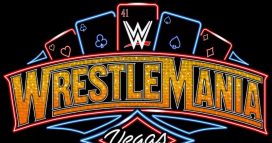Phillies
SOME GOOD COULD COME FROM THIS YET
Safe to say that things in baseball haven’t gone as planned. The Phils played all of three games last week and it’s still unclear when and if they’ll play a fourth. The Marlins? Well, they’re the Marlins. You knew that if this were going to happen to anybody it would happen to them. Still, they’ve so disrupted everybody else in the eastern divisions that right now both of them are complete chaos.
And yet.
And yet.
If we’re looking for positives in this 2020 baseball season here’s a big one: the fever grip of stubborn intractability that has had a death grip on the game for over a century has loosened. Substantially. It’s had to. Desperate times call for desperate measures, and all that. Who knows what will happen once things return to normal. But maybe now baseball has been freed to fix itself at last.
For decades the game remained obstinately opposed not only to grand change but to even the smallest tweaks. This is part of its charm but also a large cause of its downfall from its peak way back in the 1950s. While the NFL’s competition committee meets every year to recalibrate its game, sometimes substantially, baseball has been content to put the same game on the field in perpetuity regardless of whether game action is up, down, or non-existent. Baseball’s last major change – the designated hitter – is nearing the half-century mark and we’re still debating it.
The pandemic has made a mockery of that sort of mindset. It was just a few months ago that baseball was hard-headedly working to figure out a way to somehow shoehorn 162 games into a world that had fundamentally changed overnight. For the longest time Rob Manfred, Tony Clark, and everybody connected with the game acted like baseball didn’t really exist within the world the rest of us were struggling to adjust to; that despite the fact that toilet paper had become a scarce commodity the Red Sox were going to play a full season no matter what.
That mindset was absurd back in April but you couldn’t convince baseball of that. Today, however, it’s a radically different story.
Baseball came kicking and screaming to the current 60-game season, moaning about this, that, and the other thing, but now that we’re here it’s much more open to experimentation and change. Rescheduling series on the fly and seven-inning doubleheaders weren’t changes made because baseball wanted to make them but because it had no other choice. And the world didn’t end as a result. Thinking back over the past few weeks it’s clear that changes are being implemented now after much less hemming and hawing. Let’s hope this continues going forward.
I’m as much of a traditionalist as anybody but some of these changes have me interested in the game in a way I haven’t been for a while. It took only those three nightmarish games against Miami to remind me of all that has annoyed me about baseball as it had existed prior to the pandemic – long, boring games, little action outside of home runs, a dearth of strategy. Now, however, we’re going to get seven-inning games every once in a while. Finally, I’ll be able to make it from start to finish without turning off the set to head up to bed. (True, I’ll only get to see one of the two scheduled games but I’ll take it.) The game’s still pretty boring but if we make it to extra innings we’ll see a runner on second to lead off the 10th – a situation that begs the team at-bat to play situational baseball rather than sit back and wait for the long ball. It’ll baseball as it was played in the 1970s and ‘80s. I can’t wait. Throw in the stirrups and sanitary hose and I’m in heaven.
And the season itself – 60 games, 53 games, whatever – gives each contest a sense of urgency it never had before. Sure, once this all ends baseball will undoubtedly return to its traditional 162 game schedule but maybe it might be open to breaking up the season into segments or pausing the season for a round-robin tournament of some sort. Who knows. There’s more than one way to play 162 games. Who says they have to be played the way they’ve been scheduled since 1962? Baseball says, I guess. Or at least that’s what it’s said up to now. But maybe going forward it will be open to looking into how to put a little more excitement, a little more life, into its schedule.
The likelihood is that baseball, being baseball, will refuse to learn from the laboratory experiment that the 2020 season is going to be and will stick its head back in the sand in 2021, returning to us the game we’ve been increasingly dissatisfied with for years now. But maybe it won’t.
Baseball should have learned once Barry Bonds passed Hank Aaron on the all-time home run list that numbers are just that. They don’t mean all that much in and of themselves. They’re not what gives the game legitimacy or provide it with integrity. In fact, its all-time home run leaderboard, populated as it is with the likes of Bonds, Sosa, and ARod, suggests the opposite. Once we’re comfortable with the fact that the numbers, as numbers, don’t tell us all that much, we’re freed from the strictures of the game’s historical structure. Then we can focus on making the game fun and exciting rather than simply the same.
Mitch Nathanson's biography of Jim Bouton is out now. Buy it and read about a guy who stirred baseball's pot in his own way, breathing life into the game when it so badly needed it.





